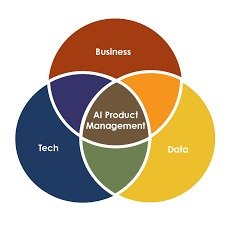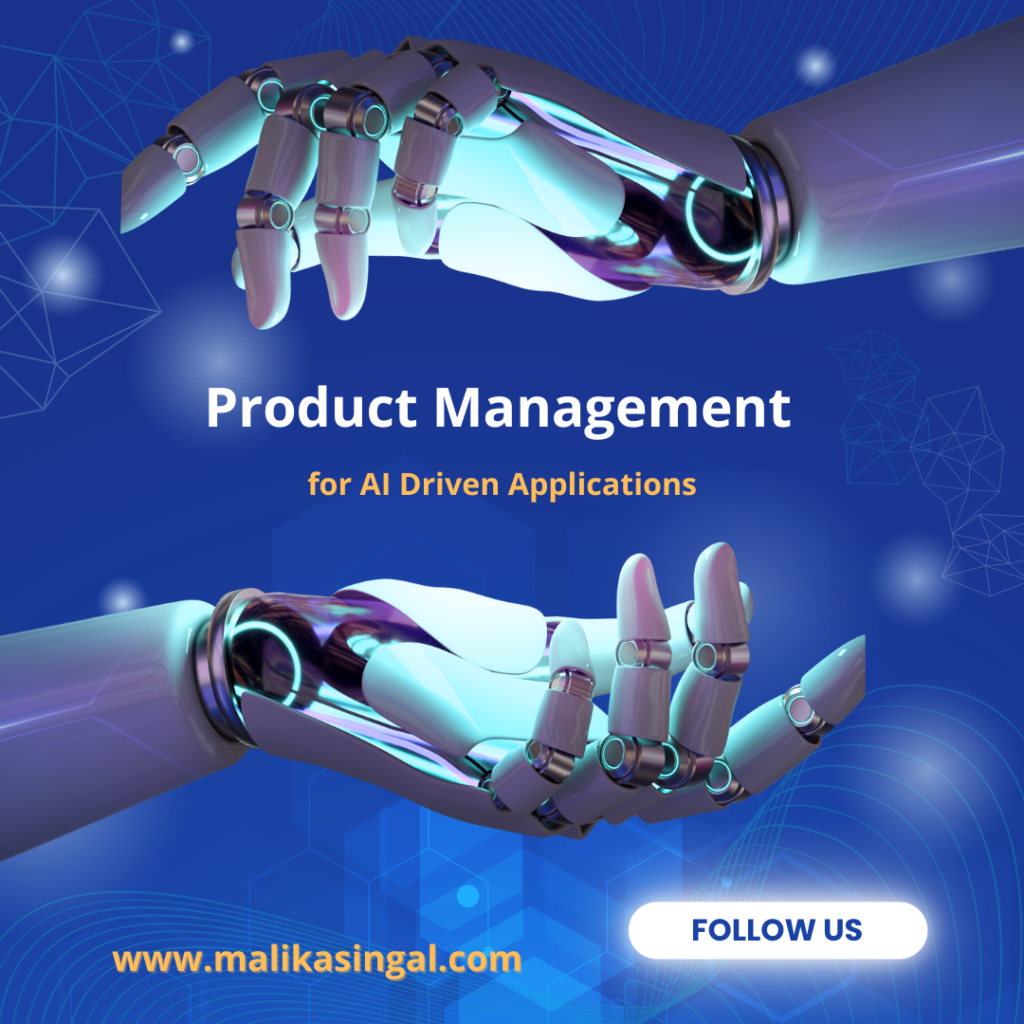Artificial Intelligence (AI) is changing how we use technology. From Netflix recommending your next favorite movie to AI-powered chatbots assisting you online, AI-driven applications are everywhere. But what role does a product manager play in these AI-powered products?

What Are AI-Driven Applications? Simple Overview
AI-driven applications are software tools that use artificial intelligence to make smart decisions and perform tasks automatically. These applications analyze vast amounts of data to learn patterns and improve over time. For example, Netflix uses AI algorithms to recommend shows you might enjoy based on your viewing history. Similarly, Google uses AI to refine search results, helping users quickly find what they need.
AI applications can be found in various industries, from healthcare (where they assist in diagnosing diseases) to finance (where they help in fraud detection). Understanding AI-driven applications is crucial for product managers as they navigate the product development process.
Real-World Examples of AI-Driven Applications
Here are some well-known companies using AI in their products:
ChatGPT by OpenAI (2024): This is an AI-powered chatbot that can help answer questions, write content, or assist in customer service. Shopify, for example, uses it to support their customers by providing quick answers to common queries and improving overall user satisfaction.
Tesla’s Self-Driving Cars (2023): Tesla’s AI technology enables cars to drive themselves by processing real-time data from sensors to make driving decisions. The system learns from millions of miles driven, continually improving its accuracy and safety.
Google Bard (2024): Google Bard is an AI tool that assists users with searches in a more conversational way, making it easier to find information quickly. This feature enhances user interaction by providing more relevant answers based on user intent.
Spotify’s AI DJ (2023): Spotify’s AI DJ creates personalized playlists for users, selecting songs based on individual preferences and adding commentary. This makes listening to music a more engaging and tailored experience for users.
These examples illustrate the diverse applications of AI and how they are changing industries, making it vital for product managers to stay updated on these trends.

What Does a Product Manager Do in AI Projects?
Product managers (PMs) are key players in developing AI-driven applications. They are responsible for defining the product vision and strategy. In AI projects, PMs need to ensure that the product not only meets market demands but also leverages AI effectively.
PMs collaborate closely with data scientists and engineers to ensure that the AI models are accurate and relevant. They conduct market research to understand user needs, define requirements, and prioritize features. Additionally, PMs must communicate effectively with various stakeholders, including marketing, sales, and technical teams, to align everyone with the product goals.
How to Build AI Products: Key Tips
When building AI-driven applications, product managers should focus on several key aspects:
Data Quality: The effectiveness of an AI application largely depends on the quality of the data it uses. Ensure that the data is relevant, clean, and accurate. This is crucial for training AI models to produce reliable outcomes.
User-Friendly Design: AI can be complex, but the user interface should be simple and intuitive. User experience (UX) design is essential in making sure that users can easily interact with the AI features without feeling overwhelmed.
Continuous Updates: AI products require regular updates and retraining to adapt to new data and changing user needs. Set up a feedback loop to gather user input and improve the product continuously.
Ethics and Privacy: As AI deals with sensitive data, product managers must prioritize ethical considerations and ensure compliance with privacy regulations. Transparency in how AI processes data helps build user trust.
By keeping these tips in mind, product managers can create effective AI-driven products that provide real value to users.
Biggest Challenges in AI Product Management
AI product managers face unique challenges that require careful navigation:
Explainability: AI systems often operate as “black boxes,” making it hard for users and stakeholders to understand how decisions are made. Product managers need to work on making AI decisions clear and understandable, which builds trust with users.
Privacy Concerns: AI applications typically rely on large amounts of user data. Product managers must ensure that they comply with data protection laws like GDPR or CCPA, protecting user privacy and maintaining data security.
Maintaining Accuracy: AI models can become less accurate over time as data and user behaviors change. Continuous monitoring and updates are essential to keep AI systems functioning correctly and providing accurate results.
Top Skills Every AI Product Manager Needs
To be successful in AI product management, you need several essential skills:
Basic AI Knowledge: Understanding the fundamentals of AI and how it interacts with data is crucial for effective collaboration with technical teams. This knowledge helps you make informed decisions throughout the product lifecycle.
Team Collaboration: AI projects require teamwork across different departments, including engineering, design, and marketing. Strong communication and collaboration skills are vital to ensure everyone is aligned with the product vision.
Data-Driven Thinking: Product managers should make decisions based on data insights and analysis. Being able to interpret data helps PMs identify user needs and improve product features effectively.

Conclusion: Why AI is the Future of Product Management



